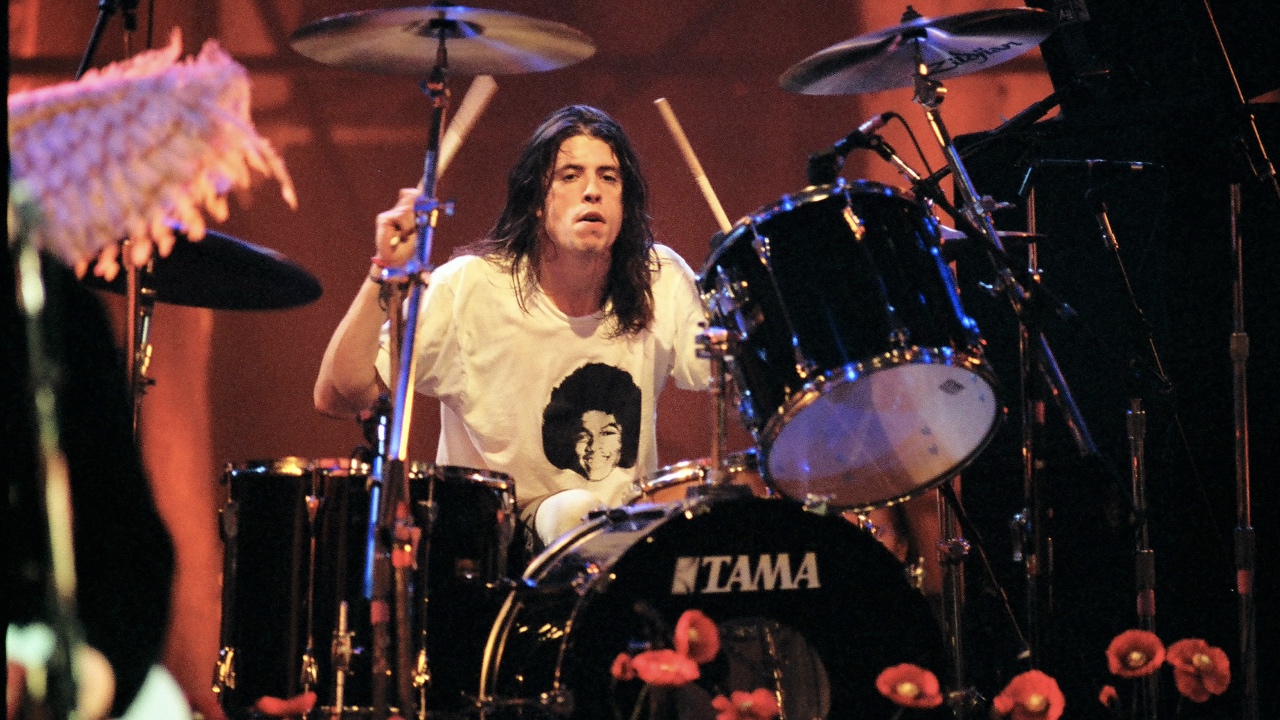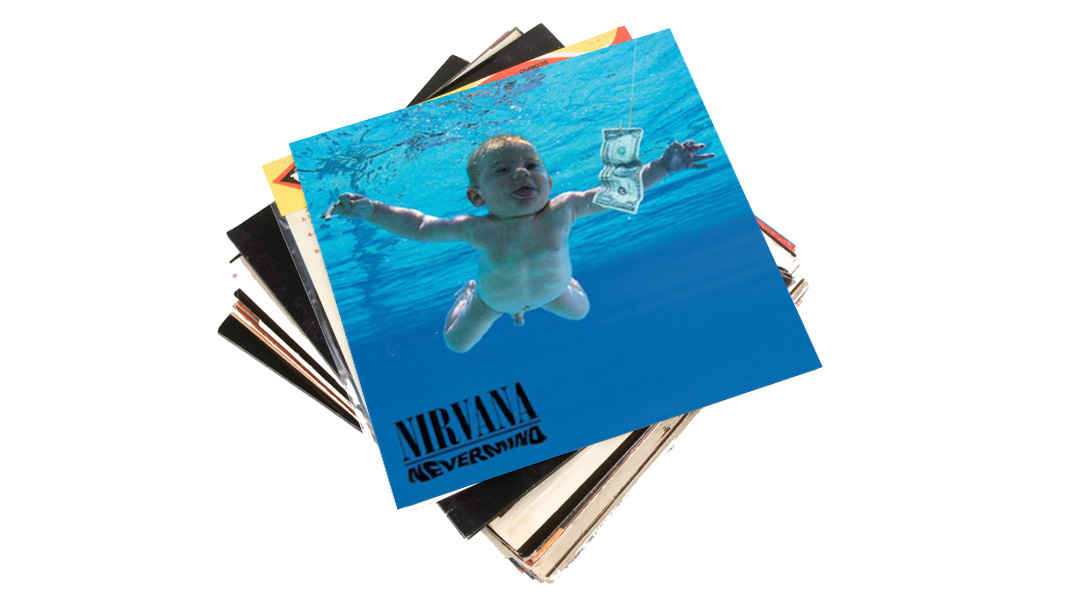Nirvana's follow-up to In Utero was a pretty bold step at the time; certainly not the friendly unit shifter some at their record label may have envisioned but an album that may be their ultimate statement as a band. Steve Albini's work as its producer during the February 1993 sessions at Pachyderm, Cannon Falls, Minnesota is obviously vital to that. Now outtake footage filmed in 2013 has recently surfaced from the 2019-released documentary Underground Inc: The Rise And Fall Of Alternative Rock. It offers more light of his perspective on its making and the controversy that came afterwards. In classic Albini style he manages to succinctly sum up a hell of a lot in just six minutes.
"I got involved with the Nirvana In Utero record when Kurt called me and asked me if I'd be willing to do it," explains Albini. "[With] In Utero they did intentionally want to make a more primitive record, and by primitive I don't mean a more rudimentary record, I mean a record where the band's sound was unvarnished."
He would strum along on this acoustic guitar and sing the songs
This approach influenced the general approach to tracking for Cobain, who took an instinctive approach to vocal takes that was very much his decision.
"The bulk of the record, the vocals Kurt is singing are his first take," he reveals. "The bulk of the record Kurt sang in one sitting. He sat with this broken acoustic guitar on his lap and had me play the songs back to him and he would strum along on this acoustic guitar and sing the songs. That was exactly the way he wanted to present it. I don't think it's the case that he had an exterior motivation for that. "It's just the way he wanted to do it."

While Alibini calls In Utero a "terrific' album, he's honest about his assessment of its predecessor and the outside interference that followed the In In Utero sessions.
"I was not a fan of Nirvana before I started working on that record," Albini admits. "I wasn't that familiar with their music but I what I had hear of it was pretty much of a type. And the type meaning that Seattle sort of garage-y sort of grunge-y, punky de-tuned, like a sort of hybrid between the Stooges and The Melvins. I kind of had that impression of their music without listening to it very carefully."
Nirvana fans may also be aware that Cobain had mixed feelings about the finished sound of their second record. Indeed, anyone following onf rom the debut Bleach may have found Nevermind's big budget sound jarring. But interestingly, the band weren't listening to that version - instead preferring what seems to be the 'Devonshire mixes' – the early version producer Butch Vig put together for the band to hear.
Get the MusicRadar Newsletter
Want all the hottest music and gear news, reviews, deals, features and more, direct to your inbox? Sign up here.
Those cassette dubs of Nevermind were what they would listen to as a band when they were discussing that album
"The Nevermind album blew up, became super huge and I have to admit I wasn't the biggest fan of it," continues Albini. "I didn't listen to it carefully, I didn't own a copy but what I had heard of it didn't really appeal to me. Having said that, while we were working on the In Utero album the band had cassette dubs of the album as it was originally recorded with Butch Vig. Those cassette dubs were what they would listen to as a band when they were discussing that album. And I thought those cassette dubs where fantastic.

Dave Grohl: “Listening to Nirvana’s In Utero kinda makes my skin crawl”
"I have to give credit to Butch Vig, he's a very good engineer," continues Albini. "He's very sympathetic. He'd been doing a lot of great stuff with a lot of bands that had inspired Nirvana. Bands like Killdozer and Laughing Hyenas. Those are bands that had inspired Nirvana, Butch made those records and those records sound awesome. So full credit to Butch Vig for making a great sounding record. When it finally went through the process of being remixed at the behest of the label, it didn't appeal to me as a listening but it probably wasn't supposed to.
"The In Utero album was done fairly quickly, we were done in 12 or 14 days. The band left the studio really happy with it, I left the studio really happy with it. As soon as they got home they started getting advice from people not in the band and all that advice was fraught with fear; 'Don't put out a scary record right now, put out a happy, pretty record that dumbasses will like'.
When I heard the finished result… it didn't sound familiar to me and I thought it sounded not so great
"To their credit Nirvana largely ignored that advice," the producer reasons. "They developed some reservations of their own about their record, which is totally normal. And I think partly because they were being told by other people that their record was bad and partly because they had these minor doubts of their own, they made some changes to a couple of songs. They remixed a couple of songs. Those remixes and those original album masters were then sent to a professional mastering studio, where a guy [Scott Litt] who is known for the mastering guy for professional hit records, did his mastering magic on them. And there was a lot of work done in the mastering. The mastering changed the sound quality of the record quite a bit.
"When I heard the finished result, which had a couple of remixes plus the original mixes that had gone through this mastering process, it didn't sound familiar to me and I thought it sounded not so great," says Albini. "Relative to what I'd heard in the studio."
The record in the store is the record Nirvana wanted you to hear
But the producer counters that there are actually some technical influences at play with the vinyl version of the album too.
"There are a couple of caveats here, when I said that it was taking into consideration the LP format and it's a very long record," he explains. "The side lengths I think are 25 minutes – 22, 25 minutes, something like that. It's really difficult to make a good sounding vinyl record of that length. It can be done but it takes a lot of attention to detail, you probably have to cut it direct… instead of cutting into lacquer you're cutting DMM [Direct Metal Mastering]. You'd probably have to cut direct from the analogue masters rather than cutting from, at that point, a fairly crude digital file. In order to make a record of quality that had side lengths that long, you have to take extraordinary steps. And obviously nobody in the process thought it was worth taking extraordinary steps.

At the time of the interview the 20th Anniversary remastered version of In Utero was yet to be released - a reissue where Albini was able to make those "extraordinary steps". But even aside from that, he's at peace with his In Utero experience.
"Those technical caveats aside, the record in the store is the record Nirvana wanted you to hear. I have no problem with that. It's their band, their record. They should be the ones to make those decisions and in this case, under a hailstorm of criticism they did make some decisions and that's how the record came out. I'm really pleased that I have been involved in the remastering of the original version of In Utero [which was released in 2013]. We were able to take extraordinary steps to make a good sounding LP version of that record. I'm very pleased that I was asked to be a participant in it. I did take every step I could to make sure the vinyl edition is going to be as good quality as possible.
Meanwhile, Dave Grohl recently revealed that listening to In Utero "kinda makes my skin crawl" due to the difficult memories it brings back.
For more info on Underground Inc: The Rise And Fall Of Alternative Rock visit undergroundincfilm.com

Rob is the Reviews Editor for GuitarWorld.com and MusicRadar guitars, so spends most of his waking hours (and beyond) thinking about and trying the latest gear while making sure our reviews team is giving you thorough and honest tests of it. He's worked for guitar mags and sites as a writer and editor for nearly 20 years but still winces at the thought of restringing anything with a Floyd Rose.
“Its mission is simple: unleash the power of any amplifier or line-level source without compromise”: Two Notes promises a “watershed” in tube amp control with the Torpedo Reload II
MusicRadar deals of the week: Enjoy a mind-blowing $600 off a full-fat Gibson Les Paul, £500 off Kirk Hammett's Epiphone Greeny, and so much more









